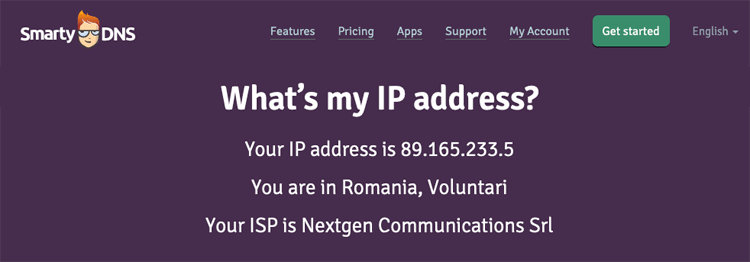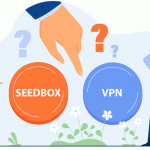What’s the Best VPN Location for Torrenting?

As more and more people are starting to use torrents again, VPNs have also become the go-to tool for making torrenting surveillance-free. But to really get a good experience, you need to use the best VPN location for torrenting.
But why do you need to do that, what happens if you don’t, and which countries qualify?
We’ll tell you all you need to know about that in this article.
Also, here is a guide on how to safely download torrents.
DISCLAIMER
SmartyDNS does in no way encourage illegal copyright infringement and online piracy. But we do understand that many people around the world have to resort to downloading torrents to get the content they need.
Is Torrenting Illegal?
Torrenting itself isn’t exactly illegal all over the world. Most governments don’t have a problem with file-sharing - except maybe countries with oppressive regime that view it as a way for people to get access to banned content.
But in most countries, torrenting is okay - as long as it doesn’t involve copyrighted content. When it does involve it, the law defines it as online piracy - the act of uploading or downloading copyrighted content, which many governments consider to be stealing.
And online piracy is illegal in pretty much all countries. Some of the most notable examples include Canada, the UK, the US, Poland, Japan, the UAE, and Australia.
What Can Happen If You Get Caught Downloading Illegal Torrents?
Quite a lot of things, but how severe they are really depends on how strict the anti-piracy laws are. And that varies from country to country.
To keep things simple, here’s a quick overview of what can happen to you:
- You might receive a threatening letter from your ISP, copyright trolls, or copyright holders.
- Your ISP might start throttling your bandwidth to discourage torrenting. Alternatively, if downloading torrents goes against their ToS, they might terminate your service.
- Copyright trolls might try to pressure you into paying them a big sum of money. Basically, they threaten to sue you for an exaggerated amount, and say they are willing to accept a settlement that is around 2-5% of the original sum.
- If you’re in a country like the US or the UAE, you can risk jail time and huge fines (anywhere from $13,000 to a whopping $150,000 per file!).
How Does Your ISP or Copyright Agencies Know You’re Downloading Torrents?
It’s pretty simple. All your ISP has to do is check the Peers tab on a torrent client for a file you’re downloading. There, they can see your IP address - the one they assigned to you.

What’s more, they can also analyze your traffic to see if you’re downloading torrents. They can use info like DNS queries, bandwidth usage, simultaneous upload streams, TCP connections, and the size, timing, and destination of your data packets to figure it out.
As for copyright agencies, they rely on lawyers and copyright trolls to monitor torrent downloads for them. Once they find your IP address on a torrent with their copyrighted content, they have their lawyers or the copyright trolls get in touch with your ISP. They know who your ISP is since your real IP address tells them.
Doesn’t Using a VPN Make Torrenting Safer?
Of course it does. The VPN hides your IP address, and encrypts your traffic, after all. So, nobody can track you on torrent clients, and your ISP can’t monitor your traffic to see if you’re using torrent websites and clients.
However, there is a catch - not all VPN providers allow P2P traffic on every one of their servers. They usually have dedicated VPN servers just for that, which are located in torrent friendly countries.
What Happens If You Use a VPN Server With No P2P Support?
If you try to download torrents on a non-P2P VPN server, the app will either redirect your traffic to a P2P-compatible server, or they will just block it.
In more extreme cases, the VPN provider might terminate your service. That doesn’t happen very often, but most services make it clear in their ToS or FAQ section that they don’t allow that. Also, VPN providers might only allow downloading on specific servers, so no seeding in that case.
So, when you use a VPN service to hide your torrent traffic, make sure you pick servers in countries where torrenting is legal.
So What’s the Best VPN Location for Torrenting Then?
Such locations include countries that don’t punish people who download copyrighted content through torrents, or countries that have a form of anti-torrent legislation in place, but don’t really enforce it.
Without further ado, here’s a list of countries that qualify for the title of Best VPN Location for Torrenting:
- Mexico - The country has very, very vague torrenting laws, and pretty much nobody respects them or cares about them.
- Romania - While the country has some legislation against torrenting copyrighted content, the authorities don’t really care about it.
- Spain - The country’s government made it clear that people can legally download copyrighted content through torrents as long as they don’t try to make money off of it or upload it.
- Switzerland - As long as you don’t plan on making any profit off of torrenting, or uploading copyrighted content through torrents, you can legally torrent in Switzerland.
- Bulgaria - Just like Romania, you can safely download torrents with copyrighted content here since prosecutors don’t bother with online piracy, and actually consider it a victimless crime most of the time.
- Hungary - The government decriminalized torrenting years ago as long as you’re not doing it for profit. In a way, torrenting copyrighted content is still illegal, but nobody really goes after torrent users.
Other good locations include Slovenia, Lithuania, Slovakia, the Czech Republic, Croatia, and Iceland. Germany and the Netherlands are decent locations too, though keep in mind downloading copyrighted torrent can be illegal there, so check with your VPN provider if it’s okay to do that on those servers.
BONUS TIP
If you want to get good speeds, try using a VPN server that’s in a neighbouring country or in your own country (if it’s possible, of course). That way, it takes less time for data packets to travel between your device and the VPN server.
Looking for a reliable VPN service?
Here at SmartyDNS we offer high-speed VPN servers with military grade 256-bit AES encryption and highly secure VPN protocols (OpenVPN, SoftEther and IKEv2), and we we adhere to a strict no-log policy.
Our VPN servers act as proxy servers and we also offer Smart DNS service that allows you to unblock 300+ geo-restricted websites around the world.
We offer convenient VPN apps for Windows, Mac, iPhone / iPad, Android and Fire TV / Stick, and extensions for Chrome and Firefox browsers.
Special offer! Get SmartyDNS for $ 3.7 per month!
Yes, and we’ll also get your 30-day money-back guarantee.
The Bottom Line
Torrenting isn’t exactly legal all over the world. And while a VPN can help you hide your tracks, you need to make sure you use servers in countries where torrenting is legal.
What would qualify as the best VPN location for torrenting in this case?
Basically, a country that either says downloading copyrighted content with torrents is legal, or a country that has some torrenting laws but doesn’t really enforce them.



